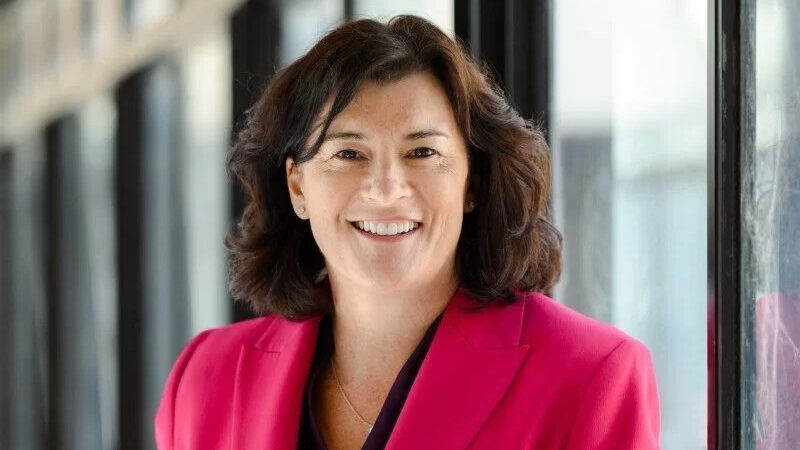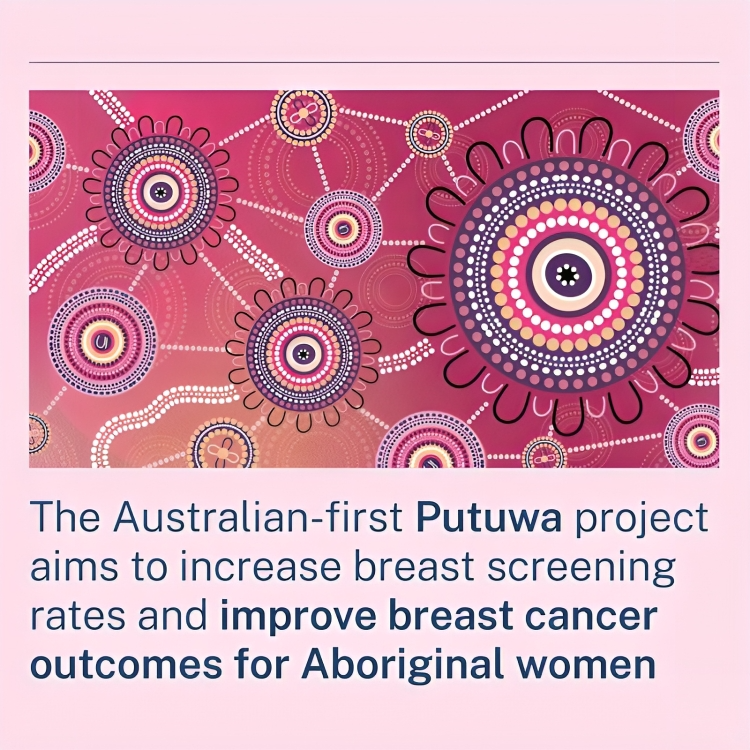
Tracey O’Brien: The Putuwa project is an Australian-first project to help break down barriers to screening and save more lives
Tracey O’Brien shared a post by Cancer Institute NSW on LinkedIn, adding:
“Cancer Institute NSW is proud to announce that through the Putuwa project, BreastScreen NSW has lowered the commencement age of screening for Aboriginal and Torres Strait Islander women from 50 to 40 years and improved the cultural safety of the BreastScreen NSW service.
Breast cancer is the most common cancer in women, but Aboriginal and Torres Strait Islander women are diagnosed with breast cancer on average four years younger, have more advanced cancer at diagnosis and poorer survival rates when compared to the overall female population.
The Putuwa project – a Gadigal word meaning to meaning to warm your hands by the fire and gently squeeze the fingers of another person – is an Australian-first project developed in consultation with the Aboriginal community to help break down barriers to screening and save more lives.
To create meaningful change we must listen to and work with Aboriginal people. I’d like to thank the Aboriginal Health and Medical Research Council of NSW and the Aboriginal community sector for helping bring the Putuwa project to life.
While it’s not the solution, we hope the Putuwa project is a step in the right direction.
This Breast Cancer Awareness Month, read more on the Putuwa project and if eligible, take the time to book in your breast screen. It’s quick and easy and could save your life.”
Quoting
“As we begin Breast Cancer Awareness Month, the Cancer Institute NSW is excited to announce the success of the Putuwa project – supporting more Aboriginal women in NSW to screen.
A new evaluation shows BreastScreen NSW participation rates for Aboriginal and Torres Strait Islander women in NSW aged 40–49 have more than doubled since the project began.
Established with support from the Aboriginal Health and Medical Research Council of NSW, Putuwa has:
– Lowered the age of screening from 50 to 40 years for Aboriginal and Torres Strait Islander women.
– Improved cultural safety with co-developed communications such as posters and fact sheets.
Collaborating with the Aboriginal health workforce, the project has been delivered in consultation with Screening and Assessment Services and key Aboriginal stakeholders and agencies.
Early detection saves lives, and access to culturally safe cancer care is key to improving cancer outcomes for Aboriginal people.
Read more about the Putuwa project.
Access BreastScreen information and resources.”

Source: Tracey O’Brien/LinkedIn and Cancer Institute NSW/LinkedIn
Dr. Tracey O’Brien is the NSW Chief Cancer Officer and CEO of the Cancer Institute NSW, Australia. Before her current role, Tracey was Director of the Kids Cancer Centre, Sydney Children’s Hospital, and Director of the Transplant & Cellular Therapy Program. Tracey has held numerous high-profile national and international leadership positions, including Advisory Chair, Cancer Australia; V/Chair (Africa, Asia and Australasia) International Centre for Bone Marrow Transplant Research and V/President of the Australian and New Zealand Children’s Oncology Group. In recognition of her exceptional contributions, Tracey was profiled in 2023 as one of the world’s foremost women in paediatric cancer by the International Society of Paediatric Oncology. In 2019 Tracey was named in the Australian Financial Review’s prestigious Top 10 Women of Influence, winning the Innovation category. In addition to her medical expertise, Tracey has a Master of Law (Health) and executive MBA and serves as a conjoint Professor in Clinical Medicine (UNSW) and Honorary Professor in Science and Engineering (Macquarie University). Dr. O’Brien remains committed to mentoring the next generation of clinician leaders and maintains an active clinical practice in cancer survivorship at Sydney Children’s Hospital.
-
Challenging the Status Quo in Colorectal Cancer 2024
December 6-8, 2024
-
ESMO 2024 Congress
September 13-17, 2024
-
ASCO Annual Meeting
May 30 - June 4, 2024
-
Yvonne Award 2024
May 31, 2024
-
OncoThon 2024, Online
Feb. 15, 2024
-
Global Summit on War & Cancer 2023, Online
Dec. 14-16, 2023
